- Home
- Paul Christopher
The Templar Conspiracy Page 23
The Templar Conspiracy Read online
Page 23
“Put out an APB or whatever it’s called. Have them picked up,” said Sinclair. Her smoky breath rattled in her throat and she felt her heart swell with expectation.
She smiled her own private smile. It couldn’t have worked better if she’d planned it. With Matoon’s people in charge and habeas corpus suspended in the face of martial law, getting the whereabouts of Holliday’s invaluable notebook could be done legally and on American soil. With that notebook and the enormous wealth it represented, the Rex Deus line would rule in the Western world for a thousand years. “Have them held in custody until I figure out exactly what to do with them.”
34
William Tritt had dispatched small units of Maine’s Right Arm in their National Guard uniforms to the homes of all off-duty members of the Winter Falls Police force, all members of the Carroll County Sheriff’s Department who lived within a twenty-mile radius of the town and the homes of all off-duty firemen in the area. By now those potential threats would either be bound and gagged or dead if they gave any resistance.
The remainder of his small force was dispatched to the woods surrounding the Abbey School. It was virtually a suicide mission, of course, but he’d spun enough tales of the population rising up in sympathy that the men of Maine’s Right Arm were positive of their success.
Tritt, of course, didn’t give a damn; he was doing a job that he was getting paid for. What happened after the job was done was none of his affair, nor did he want it to be. Until the detonation occurred there, they were to keep anyone and everyone from exiting the rink. For his own part, Tritt was in his room at a local bed-and-breakfast on South Main Street, his laptop open on the bed, waiting for the confirmation that the last payment had been deposited into his Swiss account. He had no intention of being near any of the fireworks when they went off. In fact, he intended to be some miles away.
Dean Crawford piloted his cruiser through the falling snow, doing his regular run up North Main along the lake up to Goose Corner, then back again, winding up at the shopping center where he’d Code Seven for a meal at Denny’s and then do it all over again until the end of his shift.
Tonight everyone was getting hot and bothered by all the security around the president’s visit, but Crawford had been a cop for far too long and in far too many places to care. Red Balls were something to be avoided no matter what form they took. A tour to Iraq during the Gulf War plus a decade on the Miami-Dade force, then the Baltimore force, had taught him that. Even marriage was a Red Ball, as he knew only to well after three wives had left him. Not that he wasn’t a good cop. He was; he prided himself on it, in fact, but you had to slow down eventually.
No, for now at least he was perfectly happy just to do his regular shift up to the sewage plant and around again, keeping his eyes out for the bad guys that never showed up at this time of year. For the most part crime was seasonal in Winter Falls, just like it was most other places. Crooks don’t like the cold any more than they like it too hot. On a night like tonight the worst he was going to get was a stalled-out car in a snowbank or a DUI, and that was just fine with him. He’d book out at the end of his four-to-midnight, go back to his little bungalow on the pond and catch a little late-night TV with a beer or maybe two. Alone. Quiet. Peaceful.
Crawford turned the cruiser off Willow onto Crooked Pond Road then turned into the shopping center parking lot. Just about everything was closed except the P&C and Denny’s. Everything else was dark. The snow was coming down heavily now, the wind off the lake sending it into whirls and eddies that caught in the yellow vapor lamps like bizarre, miniature tornadoes. A big Sunoco tanker was servicing the P&C, and Crawford found himself wondering if the drivers of those hulking things got extra bucks for night work or for driving through blizzards. Probably, the lucky bastards. The way the chief made it sound you were supposed to take the occasional midnight-to-eight shot if you were unmarried and you were supposed to do it without overtime.
On the other hand, he’d had worse bosses than Lockwood. If nothing else the old graybeard knew what combat was like, which was a plus. Coming back from any war wasn’t easy. It did things to you and did them to you young, things most people who hadn’t done it couldn’t understand. Lockwood did, so the occasional temper flare or sour mood was taken with more than a grain of salt. He also understood that sometimes a man had to put himself to sleep with something stronger than a beer or two to keep away the dreams and that was a bonus, too.
Crawford parked the cruiser in front of Denny’s, then coded himself out with dispatch. He made sure the bulky Motorola portable PDA was tucked into its little holster on his belt, then climbed out of the car. He took a few seconds to stretch, then trudged through the soft, deepening snow and stepped inside the restaurant. The place was almost empty except for a couple way in the back and two or three more customers hunched at the counter like regulars at a neighborhood bar. Workers coming off shift; maybe the driver of the Sunoco truck. Who knew? Most of the locals were at the hockey game—a game he could take or leave.
A bored-looking waitress came around with a menu, but he ordered from memory what he had every night on this shift: country-fried steak and eggs with hash browns and coffee. There was a copy of the New Hampshire Gazette on the bench seat of the booth he was in and he browsed through it until the big plate with his dinner came.
The waitress put it down in front of him, and for a while he read while he ate. Halfway through an editorial on setting a Robin Hood tax on the banks he stopped eating and put his fork down. Coming down Crooked Pond he’d seen a car with rental plates and a JFK Hertz license holder going in the opposite direction. He even remembered the number: ABC 2345, like a kid had chosen it. Why would somebody renting a car at JFK come to northern New Hampshire on a day like this? There were a hundred legitimate reasons, of course, but his cop sense was twitching and his appetite was gone. He took out his PDA, typed in a Code Five wants-and-warrants request and got an answer back almost instantly.
“Son of a bitch,” he whispered.
“Pardon?”
Crawford looked up. The waitress was standing there with a pot of coffee in her hand. He dropped ten bucks on the table. He looked at the PDA screen, took a deep breath and switched the machine off. “I gotta run,” he said. Who’da thought, a goddamned Red Ball in Winter Falls, New Hampshire. He put the PDA back into its little holster and stood, his meal forgotten. He headed out of the almost-empty restaurant at a run.
They drove down Sugar Hill Road on the outskirts of Winter Falls with Holliday behind the wheel. They’d spent most of the day searching for some evidence of Tritt, but had come up empty. What they had seen was a town crammed with Secret Service. Holliday had even seen what appeared to be National Guardsmen here and there, which he thought might be a little extreme. He headed the rental car toward South Main Street and the highway out of town. Kessler had been wrong; there was no threat here.
“I can’t believe the press swallowed that whole Jihad al-Salibiyya thing. Don’t they have investigative reporters anymore?” he mumbled in frustration.
“It’s all blogs and opinion these days.” Peggy shrugged, shivering in the seat beside him. The car’s heater had died long ago. “The Internet bled newspapers dry and real journalism dried up with it. The news cycle is all about razzmatazz, not story. An autistic kid getting found in a swamp or a guy hiding under the pulpit of his church, surviving a hurricane, outrates the outbreak of a foreign war or a disaster somewhere else killing tens of thousands. Live outside the United States like I have and you start to realize what a bunch of navel-gazers we are.” Beside Peggy, Holliday suddenly tensed. “What’s the matter?”
“I think that’s a cop car behind us.”
“Maybe it’s nothing. There are cops everywhere in this town tonight.” Suddenly the cop car’s flasher came on and his siren whooped once.
“He wants us to stop.”
“Can we outrun him?”
“In a Ford Escort?”
“We’ve got
ID.”
“Let’s hope Pyx did his job right,” said Holliday. He pulled over and stopped. Behind him the police car did the same. Nothing moved; no cop climbed out of the cruiser.
“What’s he doing?” Peggy asked.
“Something’s wrong.”
“FREEZE!” said a bullhorn voice out of the snow-white darkness.
And then all the lights in the world came on.
35
“I’m getting too old for all this,” Holliday said with a sigh. He and Peggy were sitting handcuffed on opposite sides of a metal desk in an interrogation room not much larger than a toilet cubicle. It smelled that way, too, pine disinfectant not quite masking the tang of old urine, passed gas and drunkards’ vomit.
It appeared that Winter Falls liked its interrogations straight and to the point. There was a retro video camera with a built-in mike looming down from a bracket in the corner and a piece of one-way glass that was so old the aluminum film was wearing off and you could see a ghostly image of what passed for the Winter Falls PD squad room.
The scene on the road leading into town had been like something out of a Bruce Willis movie. Cops of all shapes and sizes pouring out of cars and vans, some in uniform, some plainclothes, and some very definitely Feds of one kind or another. At one point they were standing handcuffed, freezing in the falling snow, while Homeland Security, the New Hampshire State Police and the FBI argued over jurisdiction.
Finally a cop in a dress uniform appeared, bundled them into a Winter Falls cruiser and gave everyone at the scene the hairy eyeball before he whisked them off to the station. It was a show of very large and very brass cojones, and no matter what the interrogation room smelled like, he found himself if not liking, at least respecting the grizzle-haired cop. Holliday was willing to bet that there was either the Marine Corps or the Rangers in the man’s background.
“Now what?” Peggy asked.
“We get quizzed by the locals and then passed up through the chain of command until we get to the big guys. Either that or we get sent to Gitmo.”
“I thought it would be closed by now.”
“Hard to keep a good idea down,” said Holliday.
“You know anyone who can get us out of this?”
“I know lots of people.” Holliday shrugged. “I just don’t know which side anyone is on anymore.” He looked around the room. “We’ll just have to wait it out, I guess.”
“I’ve never been in jail before. Don’t we get a lawyer or something?”
“We’re way past lawyers, kiddo. We are now deep in the swamp of National Security.”
The cop in the dress uniform appeared, minus his brass-buttoned jacket. He shut the door behind him and sat down in the only other chair in the room.
“Comfy?” asked the policeman. He looked irritated.
“Peachy,” replied Holliday.
“Which one of you can tell me why I’m not sitting with the President of the United States, watching a hockey game and having my picture taken?”
“Because something terrible is about to happen to your town if you don’t get really busy right now,” Holliday said bluntly.
“Is that right?” the cop said.
“That’s right.”
“Explain.”
“A man I know named Max Kessler, who has been an adviser to every president all the way back to the first Bush, said your town was the likely target for a major domestic terrorist attack, which is actually a front for an eventual takeover of the presidency and the country itself by Kate Sinclair; her son, the vice president; and Army Chief of Staff General Angus Scott Matoon, all of whom are members of a semisecret religious organization known as Rex Deus. They were also behind the assassination of the Pope by an American triggerman.”
“You’ve got to be kidding me,” said the cop. “That’s a Dan Brown novel. Tom Clancy on steroids.”
“Not even a little bit,” said Holliday. “It’s very real. All of it.”
“You expect me to believe that?”
“No,” said Holliday. “Which doesn’t change the fact that it’s true. Lots of people didn’t believe Paul Revere, either.”
The cop sighed and rolled up the sleeves of his dress shirt. Cop body language for “Now we get down to business.” Holliday burst out laughing. It wasn’t the reaction Lockwood had expected.
“What’s so funny?”
“I was right.”
“About what?”
Holliday nodded his head at the ribbon-and-death’s head tattoo on the man’s forearm. “Rangers lead the way,” he said.
“I was First Battalion,” said Lockwood.
“Lurp,” said Holliday. Which meant LRRP, or Long Range Reconnaissance Patrol.
“Where?”
“Chu Lai, Ah Shau Valley. Those nice beaches at Nha Trang.”
“Same here. You must have known Nyguen Coung, then.”
“Kit Carson Scout—one of the best. Sure, I knew him.”
Peggy was lost.
“You’re the real thing, then,” said the police chief.
“I am,” said Holliday. “Sua Sponte and all that. Eighteen and full of beans.”
“So, then, what’s this about you and your friend here being tagged as all sorts of terrorists and killers? Bodies everywhere. Shoot on sight; federal warrants.”
“Long story,” said Holliday.
“I don’t have time for long stories. The Feds are going to come barging in here any minute now and I’ll have to hand you over. No choice. Just give me a condensed version and I’ll see what we can do.”
“You ever hear about a guy named Billy Tritt?”
Malcolm Teeter had seen the cop bolting out of the Denny’s and he didn’t wait around to see who he was going to take down. As quietly as he could he climbed down out of the cab and booked out of the neighborhood. There was no doubt he was deserting his post and that he’d catch hell from that guy Barfield, but he knew perfectly well that this was just a dry run, anyway, so what did it matter? The first ass you saved was your own.
When nothing happened after ten minutes, he started to rethink his position, huddled as he was in somebody’s backyard behind a fence, freezing half to death and smoking his last three cigarettes. He knew there was a pack of Luckies in the glove compartment and in the end that’s what took him back to the truck, not fear of Barfield’s wrath.
He got real lucky then. He’d just eased himself back into the seat when the cell phone rang. If he’d waited another minute he would have missed the call. He let out a long, relieved breath, picked the phone up off the dash and flipped it open.
Twenty-two and a half inches from the back of Malcolm Teeter’s head, the cell phone-activated initiating explosion ignited the twenty-seven tons of ANFO, turning the tanker truck into an enormous grenade that vaporized Teeter before he had a chance to say hello.
The shock wave expanded exponentially, flattening the supermarket and the rest of the shopping center within less than a second. Shrapnel from the blasted stainless-steel truck leveled trees and cut through the surrounding houses like mutilating scalpel blades, killing anything alive within a thousand feet of the detonation.
A monstrous fireball blossomed like some brilliantly colored tumor, suddenly erupting from the snow-covered ground as the secondary blast wave expanded. The sound was like a crack in the world, a freight train rushing into a tornado, Joshua’s trumpet at Jericho shattering windows for a mile in every direction. The earth literally shook. The two-way mirror in the interrogation room at the Winter Falls Police Station cracked from side to side and then crashed to the floor as the entire building shook.
“Christ!” yelled Lockwood, who’d almost been thrown from his chair. “What the hell was that?”
The overhead light dimmed, flickered and died. Everything went dark.
“The beginning,” said Holliday, out of the blackness. “Now get us out of these cuffs before it’s too late.”
36
The positioning of the first
of the tanker trucks beside the shopping center had not been accidental. A hundred feet away, tucked in behind the P&C supermarket, was the main substation off the 132-kilovolt grid that powered the entire town of Winter Falls. The eight-foot-high chain-link fence topped with razor wire was no protection at all from the ANFO bomb and was obliterated during the first seconds after the explosion.
Unfortunately for the residents of the town, the main switching station for Granite State Telephone stood fifty feet from the electrical substation and transformer, and the two nearby cell phone towers on Pine Hill Road were also rendered inoperable. Within an instant almost all methods of communication in Winter Falls were destroyed.
The sound of the explosion even penetrated the hockey arena at the Abbey School, the arched rafters shaking as the pressure wave rolled over the town. Within seconds the Secret Service had begun their standard extraction procedures for the president, but they were startled and more than surprised to find themselves pinned down by what sounded like small-arms fire coming from the woods. The president and his party were taken to the Abbey dressing room, a below-grade concrete bunker where they would be safe.
“Where’s the president right now?” Holliday asked as they struggled to find their way through the squad room. Half the ceiling had collapsed and the air was full of plaster dust. They could hear voices and the sound of coughing, but they couldn’t see anything. Holliday and Peggy kept close on Chief Lockwood’s heels as he followed the wall around toward the entrance to the squad room.
“Hang on,” wheezed Lockwood, trying to spit out the cloying, ancient plaster from his mouth. “I’ll get a handheld.” The policeman reached out blindly, his hand finally finding the rack of charging radios the officers used when they weren’t in their cruisers. He hit the ON switch but there was nothing but static. “What the hell?” He hammered the radio set with his palm but there was still nothing. They could hear the sounds of people trapped in the rubble from the fallen ceiling. “Flashlights,” said Lockwood numbly. “We need flashlights so we can get these people out of here.”

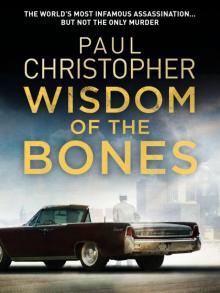 Wisdom of the Bones
Wisdom of the Bones The House of Special Purpose
The House of Special Purpose The Second Assassin
The Second Assassin Michelangelo's Notebook
Michelangelo's Notebook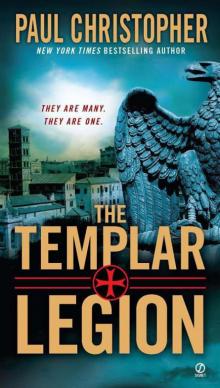 Templar Legion
Templar Legion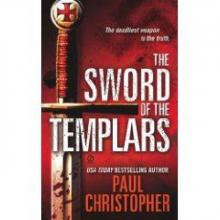 The Sword of the Templars t-1
The Sword of the Templars t-1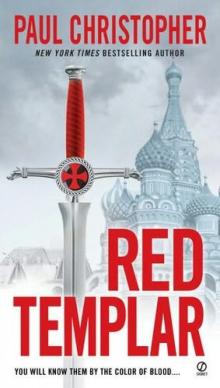 Red Templar
Red Templar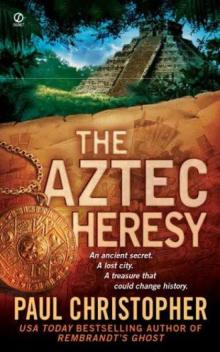 The Aztec Heresy
The Aztec Heresy The Templar Legion
The Templar Legion Rembrandt's Ghost
Rembrandt's Ghost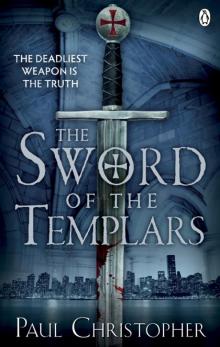 Sword of the Templars
Sword of the Templars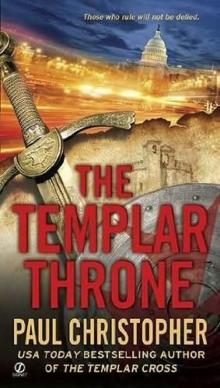 The Templar throne t-3
The Templar throne t-3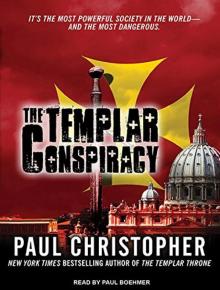 The Templar Conspiracy
The Templar Conspiracy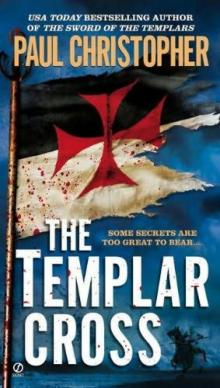 The Templar Cross t-2
The Templar Cross t-2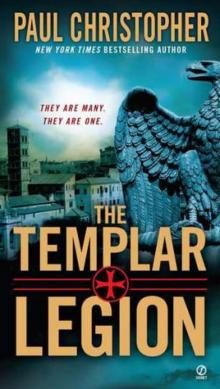 The Templar Legion t-5
The Templar Legion t-5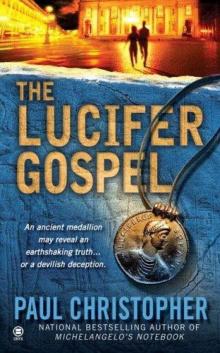 The Lucifer Gospel
The Lucifer Gospel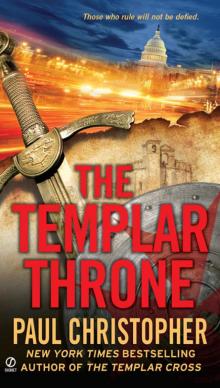 Templar Throne
Templar Throne Michelangelo_s Notebook fr-1
Michelangelo_s Notebook fr-1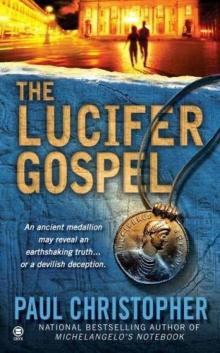 The Lucifer Gospel fr-2
The Lucifer Gospel fr-2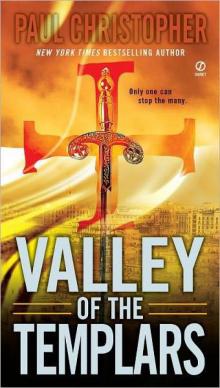 Valley of the Templars ts-7
Valley of the Templars ts-7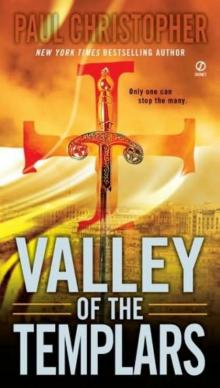 Valley of the Templars
Valley of the Templars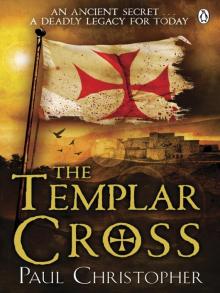 Templar Cross
Templar Cross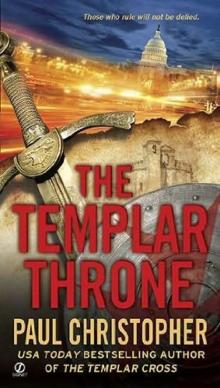 The Templar Throne
The Templar Throne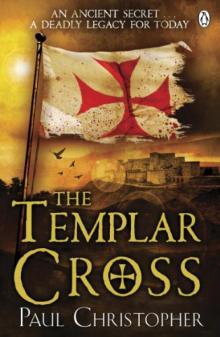 The Templar Cross
The Templar Cross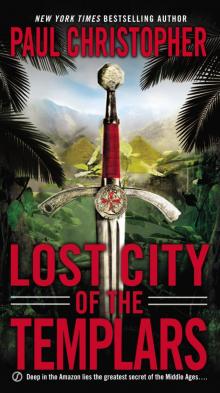 Lost City of the Templars
Lost City of the Templars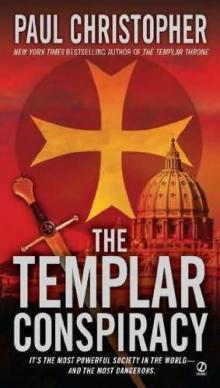 The Templar conspiracy t-4
The Templar conspiracy t-4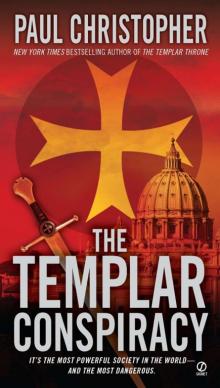 Templar Conspiracy
Templar Conspiracy